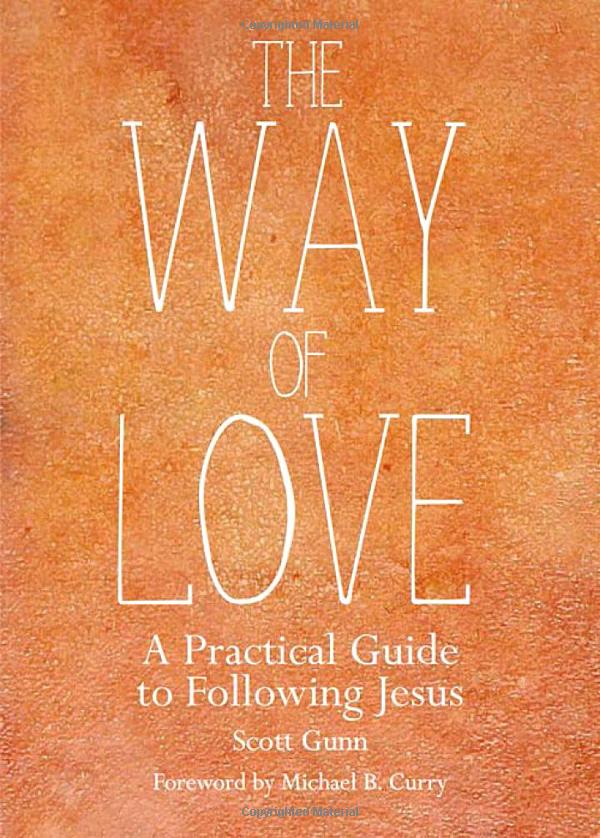This Tuesday we are discussing chapter 2: “Learn” of the Rev. Scott Gunn’s book: The Way of Love: A Practical Guide to Following Jesus.
Learn:
As we looked at last week, our baptism begins with a turning: Do you renounce Satan, evil powers, and sinful desires and turn to Jesus Christ? The service continues with the question of “Will you continue in the apostles’ teachings and fellowship, in the breaking of the bread, and in the prayers?” This statement is taken from Acts 2:42 which describes the Church immediately after Pentecost. The first affirmation, and the first thing that the early church did, was to “continue in the teachings of the apostles.” This baptismal affirmation requires us to continue to learn these teachings as contained both in the written Scriptures and in the Church’s tradition. 2 Thess. 2:15.
But like turning, learning is never a once-and-done activity. Peter tells us that we are to grow in the grace and knowledge of our Lord and Savior Jesus Christ. 2 Peter 3:18. In his Commentary on Job, Gregory the Great (540-604) writes that “Scripture is like a river again, broad and deep, shallow enough here for the lamb to go wading, but deep enough there for the elephant to swim.” We can never quit learning. The Bible is simple enough for a child to read, yet deep enough for the theologian to never touch the bottom. Learning is a lifetime activity.
Learning and Marking:
One of the great collects, going back to Thomas Cranmer’s 1539 Book of Common Prayer, tells us that “all holy Scripture [is] written for our learning: grant us to hear them, read, mark, learn, and inwardly digest them. . . .” Proper 28, 1979 BCP 236. When we read the Scriptures, the collect tells us that we need to not only hear and read the Scriptures but to mark and learn them. The Bible is not a holy relic to be handled with white gloves, but the story of God where words are to be underlined, passages should be annotated, and pages dog-eared. Almost all of the ancient biblical manuscripts that we possess contain notations in the margins or between the lines (these notes are technically called glosses). These marks are where the reader of the Scriptural passage sought to preserve what he had learned in that passage. And so it should be with us. When you read your bible, have a pencil handy (ink tends to smear over the years).
Learning and Love:
We learn not only to pursue the way of love, but the way of love also informs are learning. In his work, On Christian Doctrine, St. Augustine (354-430) writes about the role that love plays in our learning and interpretation of Scripture. He tells us that “Whoever, then, thinks that he understands the Holy Scriptures, or any part of them, but puts such an interpretation upon them as does not tend to build up this twofold love of God and our neighbor, does not yet understand them as he ought.” When we hear, read, mark, learn, and ruminate over the Scriptures, we must necessarily do so in light of Jesus’ teaching that all of the Scripture is based on the commandments to love God and love our neighbor. Matt. 22:37-40.
Augustine goes on to write that if someone “draws a meaning from them that may be used for the building up of love, even though he does not happen upon the precise meaning which the author whom he reads intended to express in that place, his error is not pernicious, and he is wholly clear from the charge of deception.” In other words, if we read the Scriptures in light of the two-fold commandment to love God and love our neighbor we may not be wholly correct in our interpretation, but we will never be wrong. Love is the lens through which we must learn.
Word of God:
Finally, as Rev. Gunn points out, there is a difference between facts and meaning. p.29. In his book, Reflections on the Psalms, C.S. Lewis writes that the Scriptures are “not ‘the Word of God’ in the sense that every passage, in itself, gives impeccable science or history. It [the Bible] carries the Word of God; and we . . . receive that word from it not by using it as an encyclopedia or an encyclical but by steeping ourselves in its tone or temper and so learning its overall message.” p.112. Jesus is the word of God, not the Bible. John 1:1. In the New Testament, it is the Pharisees, scribes, and lawyers who know the Scriptures the best. Men like Caiphas (John 18:14) and the pre-road-to-Damascus Paul (Phil. 3:5) who were the great Biblical scholars of the day; but it is these same men who failed to discern Jesus (John 5:39-40). Ultimately, all of our learning is not to know the Bible, but to know Jesus. The Scriptures are not the end, but merely the means to know Christ better. When we learn, we should always keep our eyes on that goal.
Dinner is at 6. The menu is meatloaf and mashed potatoes. Discussion about 6:45. Hope to see you here!
All scripture is inspired by God and[a] profitable for teaching, for reproof, for correction, and for training in righteousness, that the man of God may be complete, equipped for every good work.
2 Timothy 3:16-17

